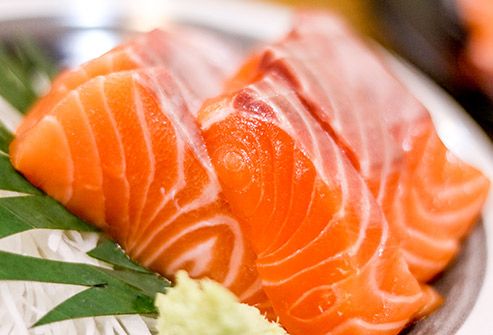One theory is that picky eaters are oversensitive to the smells, textures, and flavors of food. But we need more research to know for sure.
Picky eaters can get anxious about meals, especially if it's a social occasion. When they're invited to dinner at someone's home or go out to a restaurant, they worry that there won't be anything for them to eat. They often feel ashamed of their picky eating habits and threatened when you push food on them.
It's a great place to start. Maybe your eating habits are causing tension in your relationships, or you want to set a better example for your kids. Research has found that when you think about how your behavior affects other people, you're much more likely to make changes that stick.
There's no one-size-fits-all advice for overcoming picky eating, and there's not much research on it when it comes to adults. Since it's more common in children, you may want to follow some of the advice given to parents of picky eaters, like scaling back on snacks and drinks so you're more hungry at mealtimes and keeping track of your progress.
A dinner party probably isn't the best time to branch out. Putting pressure on yourself to eat -- or being pressured by someone else -- can make it worse because that makes eating less enjoyable. Keep meals as stress-free and pleasant as possible. Try a new food when you're by yourself or with someone who's supportive and nonjudgmental.
Don't overwhelm yourself with a plate full of new foods. Instead, serve familiar favorites along with one new food you're ready to try. Commit to just a few bites. Dietitian and feeding specialist Ellyn Satter calls this giving yourself "an out": If you don't like the new food, you'll still have something to eat.
Make a new food more appetizing by pairing it with something you enjoy. Top new foods with well-liked sauces or seasonings to help them seem less strange and unusual. For example, put breadcrumbs or bacon on Brussels sprouts.
Different cooking methods bring out different flavors. If you can't stand raw carrots, you could steam, sauté, or grill them instead. Roasting veggies -- especially squash and roots like beets, parsnips, and onions -- often makes them softer and sweeter.
If parents keep offering an unfamiliar food, most kids will take a bite ... eventually (it can take eight or more tries). As adults, we're not much different. Studies have shown that the more times we try a food, the more we may like it. Think of new foods as something you don't eat -- yet. Build up familiarity. Watch others eat it first. Cook with it. Place a bite in your mouth and take it out. You don't have to chew or swallow right away.
14/15
Ask for Help

If you're really struggling with certain textures or are prone to gagging, occupational therapy could be a solution. The therapist will help you chew and swallow more effectively and can suggest ways to get more comfortable with different types of food.
15/15
When It's Unhealthy

Run-of-the-mill picky eating doesn't usually cause major health problems. But a more serious form, avoidant restrictive food intake disorder (ARFID), is considered a mental disorder. (It used to be called "selective eating disorder.") People with it avoid food to the point that they don't get enough nutrients. They face severe weight loss, vitamin deficiencies, and other issues.
posted from Bloggeroid












